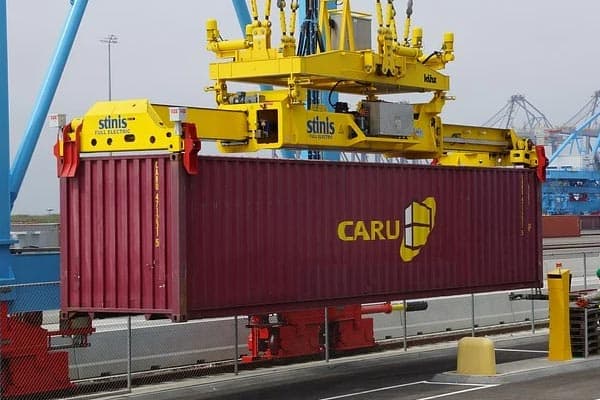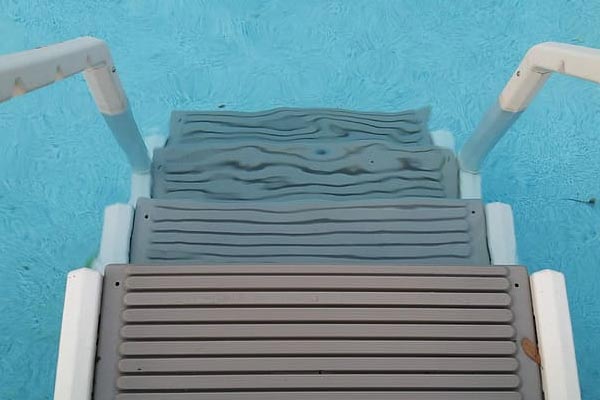How to Legally Have a Shipping Container in Your Backyard
Shipping containers are sturdy enough to make excellent structural additions to any home, and they’re great for a broad range of projects.
However, it’s not legal everywhere to have this structure in your yard, and you may have to jump through a lot of hoops to get everything ready before you move in your shipping container.
If you’re considering adding one of these containers to your yard, you’re in the right place.
can I have a shipping container in my backyard?
Simply put, the legality of having a shipping container in your yard will vary from state to state, and you also have to consider any local regulations or rules surrounding it for your municipality.
You can have a shipping container in your yard if you do your research and get the correct permits unless you live in an area that strictly prohibits them.
Living in more rural areas gives you more freedom, while more densely populated areas have more rules and regulations in place.
Whether or not you’re legally allowed to have a shipping container in your yard is the first thing you should consider if you’re planning on using the container for a home structure.
It’s also the same for anyone who wants to bring a shipping container in for the purpose of using it for storage.
You have to start by acknowledging that there are permits and regulations involved, including potential building permits.
Do You Need a Permit for Your Shipping Container?
Before you run out and buy a shipping container, you’ll want to start on your paperwork to ensure it has time to process before the container gets here.
You also have to learn what the local laws require when it comes to putting larger structures on your property. We’ve picked out a few helpful tips to remember when you’re dealing with permits for your shipping container:
- Container Size – Some areas will allow you to temporarily put a shipping container on your property without making you get a permit as long as it doesn’t go over a set size. For example, you won’t need a permit in some areas if your container has less than 200 square feet of floor space.
- High-Traffic Locations – It can be a challenge to get a permit for your container if you live in a high-traffic area. Shipping containers aren’t the prettiest things to look at, and they could take up too much space and cause an obstruction when the company delivers it to your location.
- Homeowner’s Association – If you live in an area with a homeowner’s association active, you will have to ask if they allow shipping containers on the property. Chances are, they’ll deny you because they have a very industrial look that clashes with the more desirable residential look.
- Permit Expediter – If you applied for a permit and you’re running into roadblocks, you may want to consider working with a permit expediter. This is a consultant who will fill out and submit your paperwork for you.
- Permit for Temporary Use – Depending on your location, your city ordinances might require you to apply for and get a temporary use permit for your container. This is typically very quick with minimal effort on your part.
- Use as a Storage Container – If you plan to turn your shipping container into a temporary storage unit, it could be easier to get permits. However, most cases won’t require a permit as long as you can guarantee that your shipping container is temporary and it won’t turn into a permanent addition to your property.
Does a Shipping Container Require a Permit?
Some cities or towns will require that you get a building permit for your container, and this is even true if you plan on using it for temporary storage.
This is due to the fact that these same cities require that you have a foundation set up for your container. On the other hand, some cities allow you to have your container as long as it meets specific criteria.
For example, let’s say that you live in Portland, Oregon. The Bureau of Department Services has a code guide where they allow you to install your shipping container without a permit if you meet the following:
- Your container won’t get equipped with lighting, plumbing, or electrical power
- Containers are for storage only
- Containers won’t have a High-Hazard Group H occupancy
- Container won’t get used as a hobby room, studio, shop, lunchroom, office, playhouse, or sales area
- Containers won’t get stacked
- Won’t store motorized passenger vehicles in the container
If your container falls short of these criteria, you’ll need to follow the criteria that get outlined in the Building and Zoning Codes.
This is specific to Oregon state, and other states can have different criteria you have to meet. This is why it’s a good idea to get acquainted with your local regulations.
Information You Need to Get a Shipping Container on Your Property
Once you check with your local ordinances and find out whether or not it’s legal to have a shipping container on your family, it’s time to start the paperwork process.
You should also check to see if you signed a neighborhood agreement when you bought the property and see if your neighborhood has restrictions on what you can do on your own property.
Since a shipping container is an industrial item, your neighbors may have an issue with how it looks in your yard.
It can get even worse if your neighbors make a fuss about the shipping container and try to get rid of it, so it’s a good idea to have everything in order.
You’ll have to provide the following when you’re trying to get your permit for the shipping container:
- Container’s physical condition
- The physical location where you plan to put the container
- Local regulations and rules
- How the residents or neighbors in the surrounding area will be affected
- Length of time you’re planning on having the container
Bottom Line
You can have a shipping container in your backyard, depending on your specific circumstances. However, it’s essential that you get very acquainted with the local regulations and rules, so it’s legal to have your shipping container on your property.
In many cases, it’s perfectly legal to own one and use it as storage, a guest house, office space, or a garden.
If you choose to use your shipping container as storage or housing, you could have different rules to follow.
Some states won’t allow you to have shipping containers in a residential neighborhood, but some do for a short amount of time. So, the rules and regulations that pertain to having a shipping container in your backyard can vary greatly.
If you’re not sure where you fall, do your research and pay your local council about your area-specific laws and regulations.
The last thing you want to do is pay a large amount for the shipping container and have to turn around and remove them because you skipped doing the paperwork.
If you get it right and follow the regulations, you can have your shipping container and use it for whatever you please without an issue.






